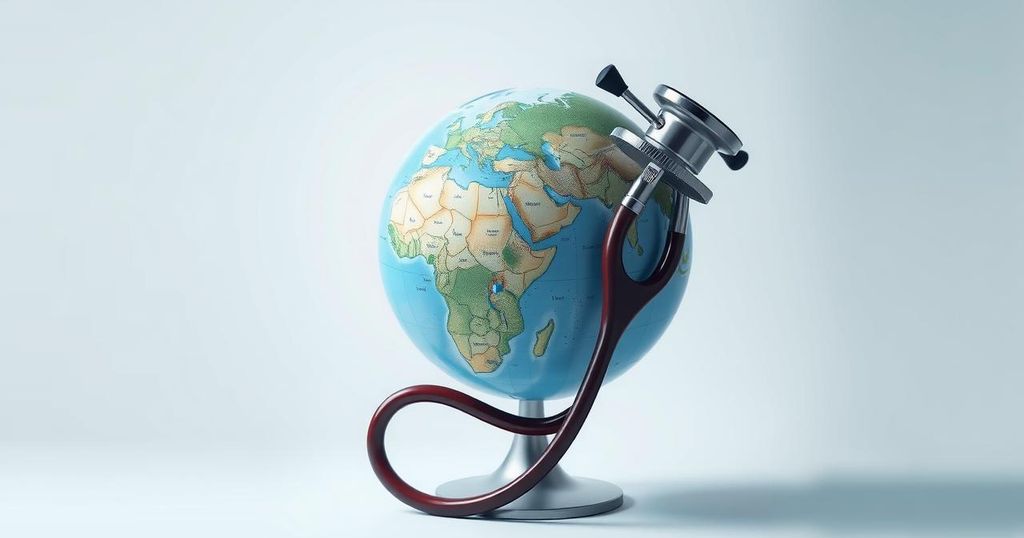Argentina’s Withdrawal from the WHO: President Milei Asserts Sovereignty

President Javier Milei of Argentina has announced plans to withdraw from the World Health Organization, citing concerns over health policy disagreements and international interference with national sovereignty. This decision aligns with prior moves by the United States to exit the organization, indicating a potential trend among countries re-evaluating their relationship with international health bodies.
Argentinian President Javier Milei has declared the government’s intention to withdraw Argentina from the World Health Organization (WHO), which is headquartered in Geneva. This decision emerges from significant differences in health management policies and concerns regarding the political influence certain member states exert over the organization. President Milei’s spokesperson, Manuel Adorni, articulated that this move is a stance against foreign interference in Argentina’s sovereignty, particularly concerning health matters.
Adorni commented on the past administration, highlighting the lengthy lockdown implemented under former President Alberto Fernandez during the pandemic. He criticized the WHO’s management, asserting that the organization lacks independence and is susceptible to political pressures. The spokesperson asserted that this withdrawal allows Argentina to adapt its health policies more effectively to the nation’s unique requirements while promoting its sovereignty.
This announcement follows the United States’ prior decision to withdraw from the WHO, a move made under the Trump administration, as he expressed discontent with how the organization managed the COVID-19 pandemic. President Milei has shown ideological parallels with Trump, viewing him as a primary ally, and both leaders have shared similar positions concerning international health organizations.
In light of the United States’ impending withdrawal from the WHO, the organization has expressed regret, hoping that the U.S. will reconsider its decision. President Trump’s exit is scheduled for the end of January 2026, signifying significant shifts in international relations regarding health governance. Milei’s actions could signify a broader trend of nations reevaluating their relationships with international health bodies.
The World Health Organization (WHO) is a specialized agency of the United Nations responsible for international public health. It was established in 1948 and has played a crucial role in coordinating responses to health emergencies, including pandemics. Recently, its handling of the COVID-19 pandemic led to criticism from various member states, prompting some, like the United States and now Argentina, to reconsider their membership and engagement with the organization.
In conclusion, the decision by Argentina to withdraw from the WHO under President Javier Milei illustrates a significant political stance against perceived external imposition on national sovereignty in health policies. The context of the U.S. withdrawal further emphasizes a shift among nations regarding their involvement in international health organizations, with both leaders advocating for stronger national autonomy in health governance.
Original Source: www.swissinfo.ch







